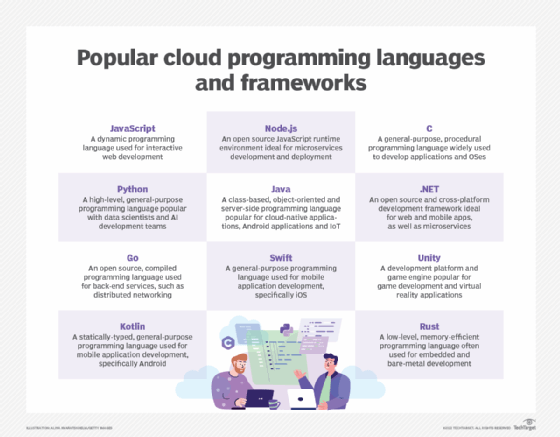What is C?
The C programming language is a procedural & general-purpose language that provides low-level access khổng lồ system memory. A program written in C must be run through a C compiler lớn convert it into an executable that a computer can run. Many versions ofUnix-based operating systems (OSes) are written in C và it has been standardized as part of the Portable Operating System Interface (POSIX).
Bạn đang xem: C&b executive là gì
Today, the C programming language runs on many different hardware platforms và OSes such as Microsoft và Linux.
Pros and cons of C
The C language comes with a set of special characteristics, making it one of the most widely used languages of all time. The following are the main benefits of using C:
Portable. C is machine-independent and C programs can be executed on different machines. Mid-level programming language. It"s a mid-level language that supports the features of both a low-level & a high-level language. Rich library. It offers numerous built-in library functions that expedite the development process. Speed. It"s a compiler-based language, which makes the compilation và execution of code faster. Since only essential & required features are included in C, it saves processing power & improves speed. Pointers. C uses pointers, which improve performance by enabling direct interaction with the system memory. Recursion. C enables developers khổng lồ backtrack by providing code reusability for every function. Extensible. A C program can be easily extended. If code is already written, new features & functionalities can be added to it with minor alterations.C also comes with a few shortfalls, even though it"s an ideal language for programming beginners due lớn its simple syntax, algorithms and modular structure. The following are a few disadvantages of using C:
Namespace feature. C lacks namespace features, which means the same variable name can"t be reused in one scope. Without namespaces, it"s impossible to lớn declare two variables with the same name. Run-time checking. C doesn"t display code errors after each line of code; instead, all the errors are presented by the compiler after the program has been written. This can make code checking a challenge, especially for larger programs. Constructor & destructor. Since C isn"t object oriented, it doesn"t offer constructor & destructor features. Constructing or destructing a variable in C must be done manually through a function or by other means. Garbage collection.Xem thêm: Xem Phim Việt Nam, Phim Việt Chiếu Rạp Mới Nhất Từ Trước Đến Nay
C isn"t equipped with garbage collection. This important feature automatically reclaims memory from objects that are no longer required by the library or an app.Where is C used?
C has a wide range of real-world applications that aren"t limited khổng lồ the development of OSes và applications. C is also used in areas such as graphical user interface development & integrated development environments.
The following are some use cases for the C language:
OSes, such as Unix và all Unix applications; language compilers, including the C compiler; text editors; print spoolers; assemblers; network drivers; language interpreters; and utilities, such as network drivers, mouse drivers và keyboard drivers.
What"s the difference between C và C++?
While C & C++ sound familiar, the usage và features of both languages differ to lớn a certain extent. C++ is a superset và successor to the C language that uses an entirely different set of programming concepts. C is a procedural programming language, whereas C++ provides OOP support.
The following highlights the differences between the two languages:
C is a procedural language that provides no support for objects and classes. C++ is a combination of OOP and procedural programminglanguages. C has 32 keywords and C++ has 63 keywords. C doesn"t have access modifiers, whereas C++ does. C uses the header tệp tin for input & output operations and C++ uses the header file for input and output operations. C doesn"t support function & operator overloading, but C++ does. In C, the main() function calls are made through other functions used in the code, but C++ doesn"t provide that functionality.History of C
The C programming language was developed at the former AT&T Bell Laboratories in the early 1970s by computer scientist Dennis Ritchie. The successor to the B language, C was initially developed for writing code for the Unix operating system, which at the time used assembly programs that communicated directly with the computer hardware. Assembly programs can be complex & lengthy, và programmers needed a language that promoted a user-friendly set of instructions. C fulfilled these objectives & also helped overcome the challenges that programmers experienced with BASIC, B & Basic Combined Programming Language.
Due to lớn its popularity & flexible features, it was soon released for cross-platform usage và quickly became commercialized. C is still commonly used in web development projects and many popular languages, such as Java, PHP và JavaScript have directly or indirectly borrowed features & syntax from C.
While C has transformed over the years, it"s still used commonly in lower-level programs, such as kernels.
C has rapidly evolved since its inception. Examine the history of C, how it has evolved và why it"s still relevant today.














